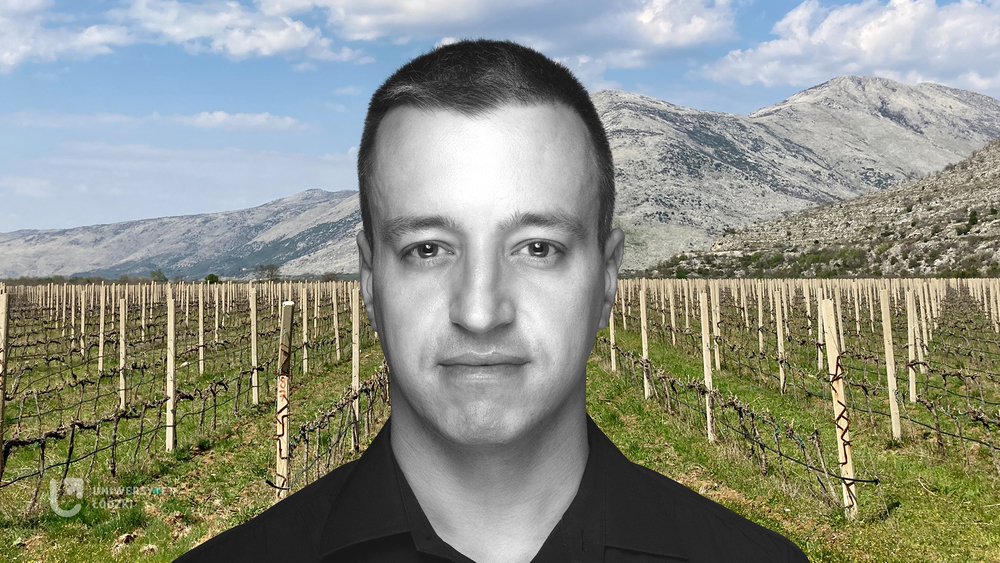
Dr Marek Majer represents the Department of Slavic Philology and Waldemar Ceran Research Centre for the History and Culture of the Mediterranean Area and South-East Europe – Ceraneum, studies the earliest history of the Slavic languages and their common ancestor – the Proto-Slavic language from about 1500 years ago. He has obtained his PhD degree at Harvard University. He has consulted Szczepan Twardoch's latest novel entitled "Chołod", helping to develop a fictional "Chołod" language. He is a manager and a contractor of projects funded by the National Science Centre, National Programme for the Development of Humanities and the Ministry of Education and Science as well as an author of articles and scientific studies.
What inspired you to become a scientist?
I grew up in a philological family. But that alone wouldn't be enough: inspiration must come from genuine curiosity. The origin of words and changes in language have fascinated me for as long as I can remember! And the understanding origins of Polish leads through learning about other Slavic languages.
What impact does your work have on the surrounding reality?
People have a need to get to know their past and ponder where things come from, how they have changed over time. It also helps to better understand the processes taking place today. As professional language historians, we try to provide such information in the area of language.
How do you understand the term: profession of a scientist?
Searching for new knowledge and disseminating it – that’s clear. However, in disciplines such as ours, it is also important to remain open to the world, not to lose touch with the present. A scientist complaining about today's youth and glorifying the good old days – that does not inspire my confidence.
Consultations and statements for the media
Uwaga! Po Polsce krąży nowy wirus: mianownikozy. Czy jest groźny? (Gazeta Wyborcza)
More information about Dr Marek Majer’s research
Dr Marek Majer deals mainly with the earliest history of the Slavic languages and research on their source, i.e. the Proto-Slavic language, as well as an even more distant in time, Proto-Indo-European language, which is the starting point for the entire Indo-European family. Dr Majer also devotes much attention to smaller languages located on the outskirts of today's Slavic lands, such as Macedonian, Slovenian or Sorbian languages. In addition, he is interested in the languages that function in close proximity to the Slavic languages and remain in the sphere of strong mutual interactions with them, e.g. Albanian or Baltic languages (Lithuanian, Latvian).
The detailed topics of Dr Majer‘s research are diverse; his works usually pertain to the origins and development of specific words or grammatical elements in different languages. Currently, Dr Majer is a manager of a project funded by the National Science Centre on the origins and evolution of the forms of the comparative degree of the adjective (‘higher’, ‘better’, ‘clearer’ etc.) in Slavic, carried out in cooperation with the Institute of Polish Language of the Polish Academy of Sciences.
Dr Majer obtained his PhD degree at Harvard University (2017). He is an author of historical and linguistic chapters in international collective studies on the Slavic languages, e.g. Cambridge Handbook of Slavic Linguistics (Cambridge University Press), Oxford Guide to the Slavonic Languages (Oxford University Press) and Encyclopedia of Slavic Languages and Linguistics (Brill). He is a member of the Commission on the History of Language at the Committee of Linguistics of the Polish Academy of Sciences and a board member of the international Slavic Linguistics Society. He won the Scholarship for outstanding young scientists of the Ministry of Science and Higher Education (2018-2021) and the Rector's Individual Award of 1st degree (2021).
Recent and current activities
Implementation of a project funded by the National Science Centre, aimed at investigating the origin, history and evolution of the comparative degree of the adjective (pretty : prettier) in the Slavic languages. The researchers intend to accurately reconstruct the process of the development of this formation from its prehistoric origins to modern times. Read more about the project.
Proto-Slavic article for the Encyclopedia of Slavic Languages and Linguistics Online (Brill)
Scientific achievements
Source: Department of Slavic Philology, University of Lodz
Edit: Michał Gruda (Communications and PR Centre, University of Lodz)
The mission of the University of Lodz is to conduct reliable research and actively disseminate facts and research results so as to wisely educate future generations, be useful to society and courageously respond to the challenges of the modern world. Scientific excellence is always our best compass. Our values include: courage, curiosity, commitment, cooperation and respect.
